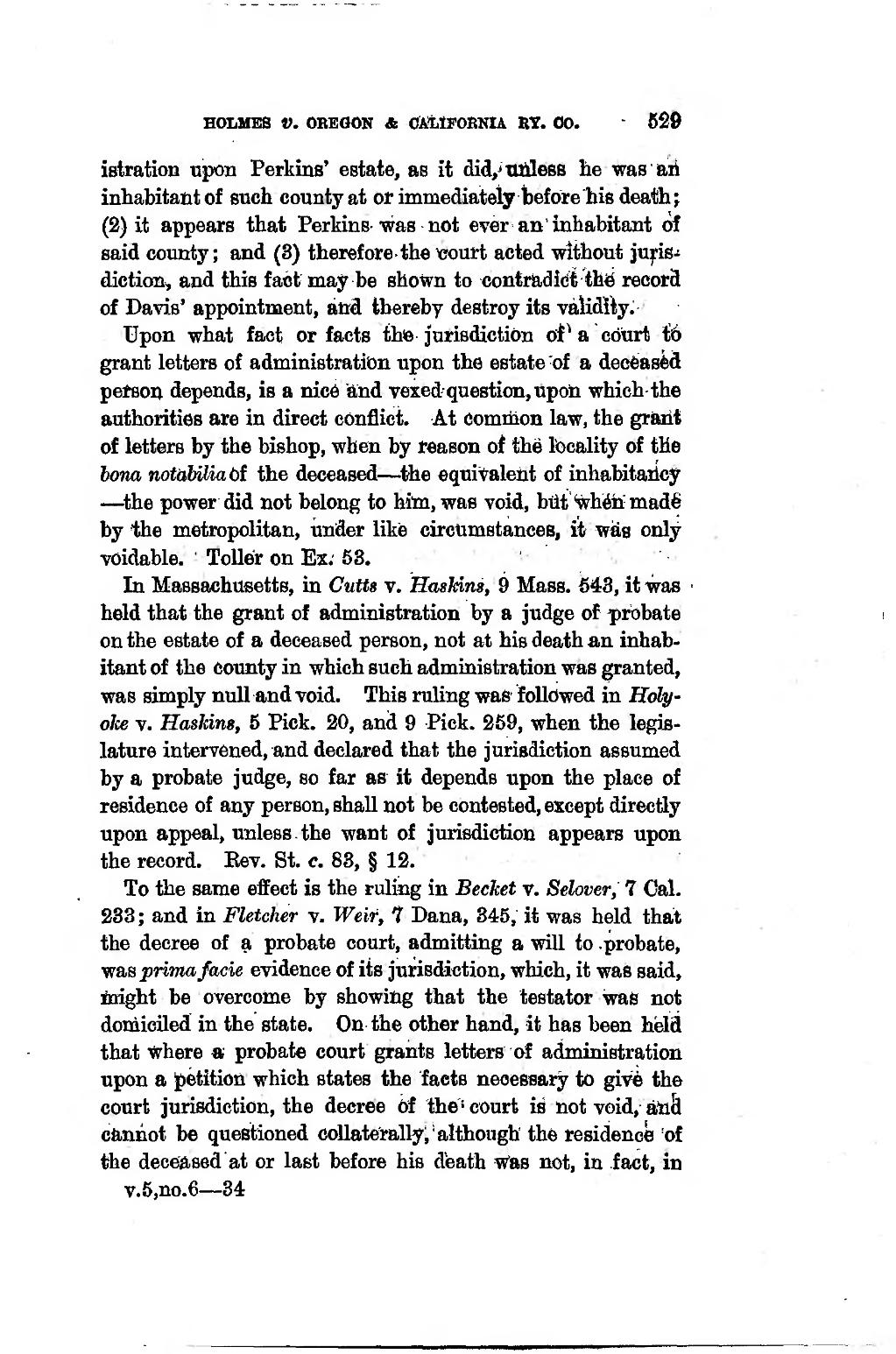HOLMES «. OBBGON * OAtii'OBNIA ET. 00. " 629 �istration npon Perkins' estate, as it did/ tUiless he was aii inhabitaût of such county at ot immediately before his death j (2) it appears that Perkins was not ever an'inhabitant of said county; and (3) therefore the tiourt acted without jups- diction, and this fact may be sbown to contradidith^e record of Davis' appointment, and tbereby destroy its validity. �Upon wbat fact or facts the iuriedictiôn of ^ a court tô grant letters of administration upon the estate of a deoeased petson depends, is a nice and vexëd question, lipon which the authorities are in direct conflict. At common law, the graht of letters by the bishop, when by reason of the l'ocality of tHe bona notaUlia ôf the deeeased— the equivalent of inhabitaiioy — the power did not belong to hiin, was void, bût *whëh made by the metropolitan, ûnder like eircumstances, it waa only voidable. Toller on Ex. 53. �In Massachusetts, in Cutts v. HasJdns, 9 Mass. 643, it was held that the grant of administration by a judge of prbbate on the estate of a deeeased person, not at hisdeathan inhab- itant of the county in which such administration wàs granted, was simply null and void. This ruling was foUOwed in Holy- oke V. Haskins, 5 Pick. 20, and 9 Pick. 259, when the legis- lature intervened, and declared that the juriadiction assumed by a probate judge, so far as it depends upon the place of residence of any person, shall not be contested, except directly upon appeal, unless the want of jurisdiction appears upon the record. Kev. St. c. 83, § 12. �To the same effect is the ruling in Becket v. Selover, 7 Oal. 233; and in Fletcher v. Weir, 'i' Dana, 345, it was held that the decree of a probate court, admitting a will to .probate, Mçaa prima f acte evidence of its jurisdiction, which, it was said, might be overcome by showing that the testator was not domioiled iû the state. On the other hand, it bas been hëld that where « probate court grants letters of administration upon a petition which states the facts neoessary to give the court jurisdiction, the decree Of the' court is not void, àuà cànnot be questioned coUaterally; ' although the residence oi the deeeased at or last before his death Was not, in fact, in �v.5,no.6— 34 ����
